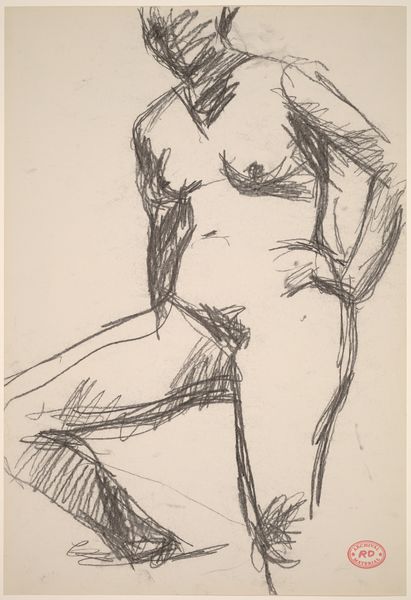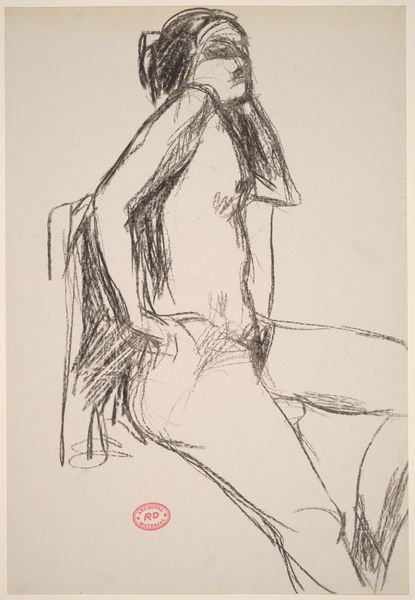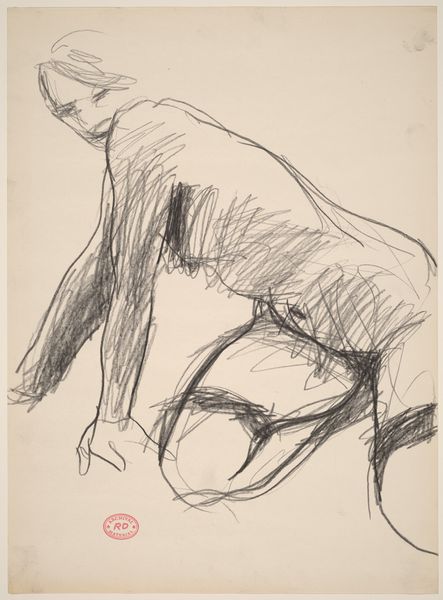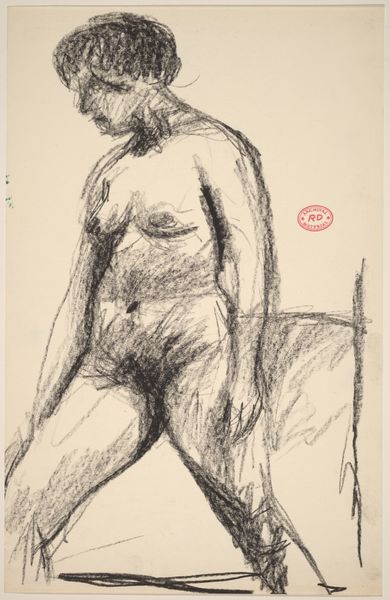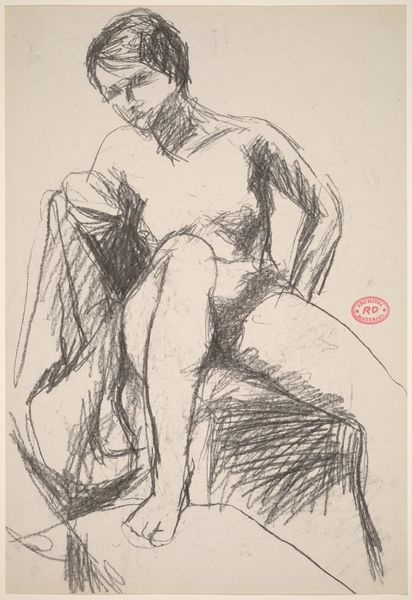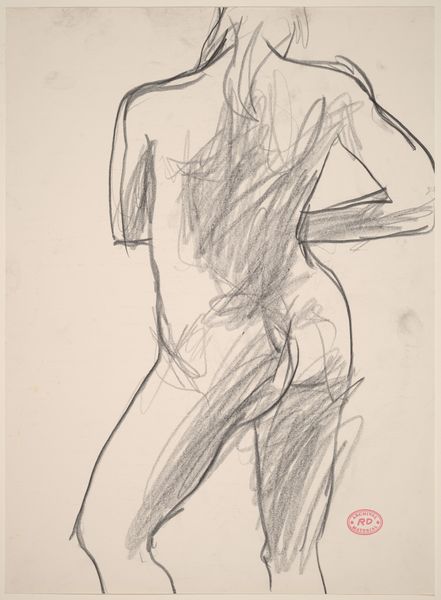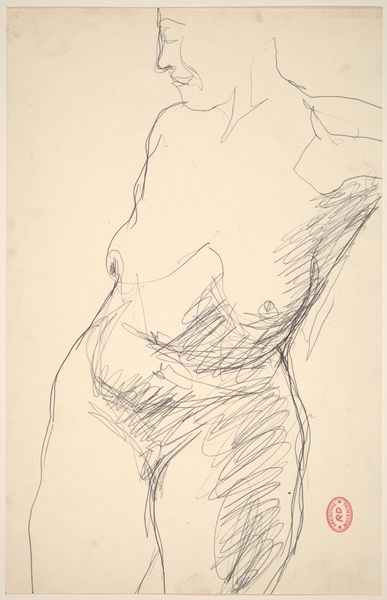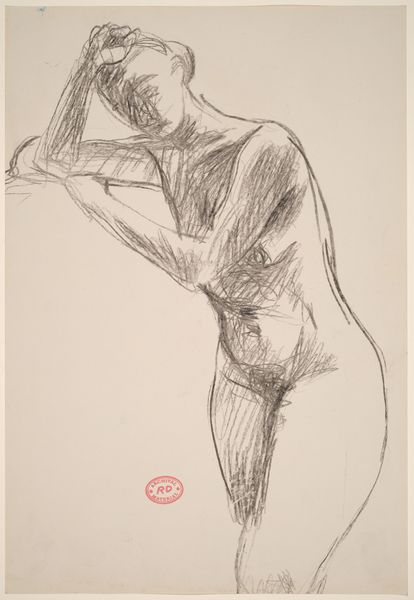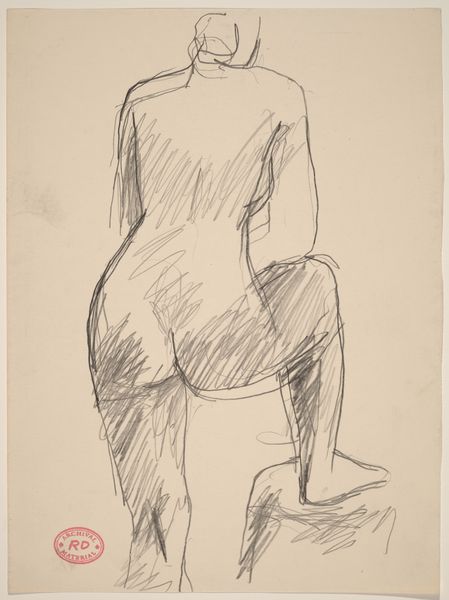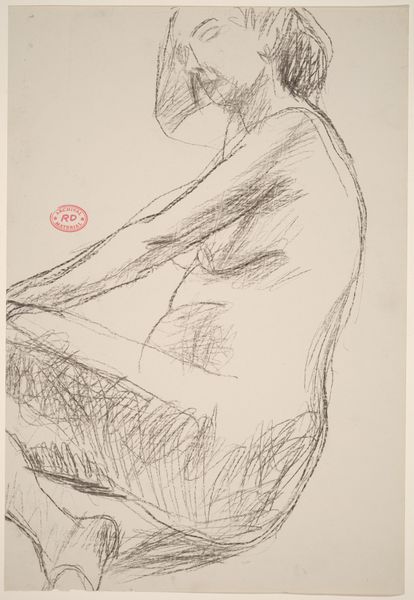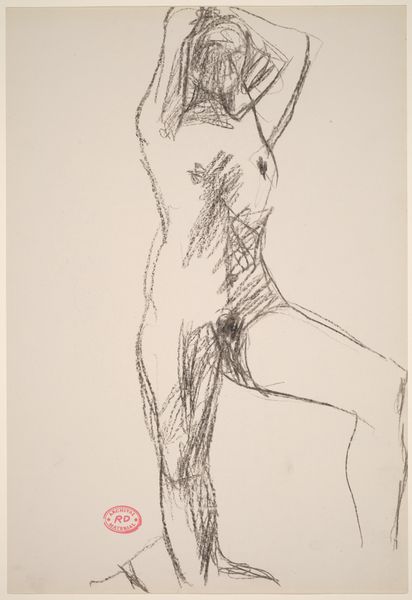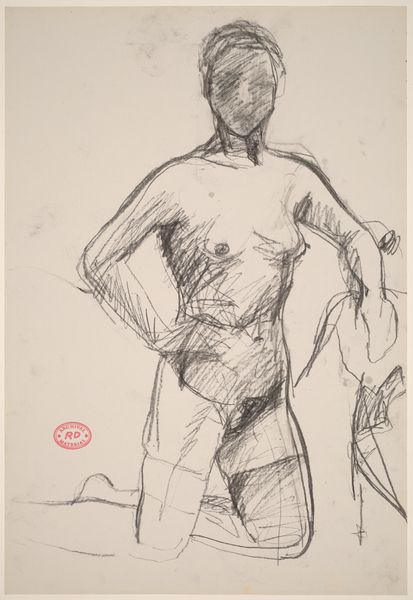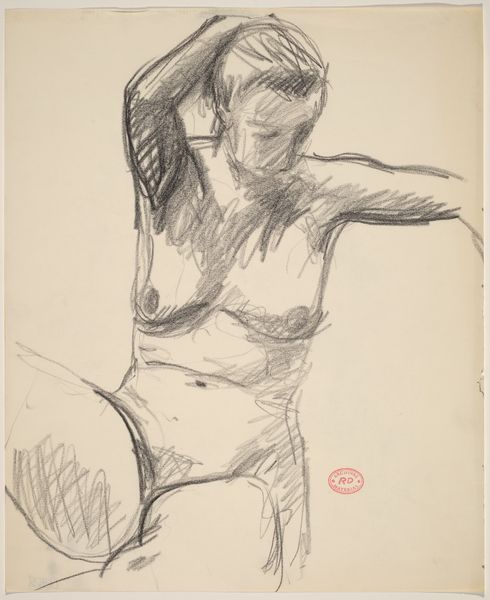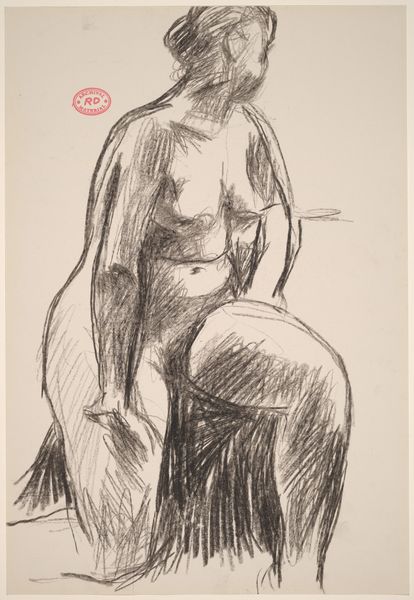![Untitled [standing female nude resting her left arm on a support] by Richard Diebenkorn](/_next/image?url=https%3A%2F%2Fd2w8kbdekdi1gv.cloudfront.net%2FeyJidWNrZXQiOiAiYXJ0ZXJhLWltYWdlcy1idWNrZXQiLCAia2V5IjogImFydHdvcmtzLzJhZmQxMDVhLWRkNzktNDZlNS04ZjdlLWM0ZWVkNWEzMTc4ZS8yYWZkMTA1YS1kZDc5LTQ2ZTUtOGY3ZS1jNGVlZDVhMzE3OGVfZnVsbC5qcGciLCAiZWRpdHMiOiB7InJlc2l6ZSI6IHsid2lkdGgiOiAxOTIwLCAiaGVpZ2h0IjogMTkyMCwgImZpdCI6ICJpbnNpZGUifX19&w=3840&q=75)
Untitled [standing female nude resting her left arm on a support] 1955 - 1967
0:00
0:00
drawing, pencil, charcoal
#
portrait
#
drawing
#
figuration
#
bay-area-figurative-movement
#
pencil
#
charcoal
#
nude
#
modernism
Dimensions: overall: 40.6 x 27.9 cm (16 x 11 in.)
Copyright: National Gallery of Art: CC0 1.0
Curator: This charcoal drawing by Richard Diebenkorn, made sometime between 1955 and 1967, presents an intriguing, fragmented figure. Editor: My first thought is its sense of immediacy, almost as if the artist captured the model mid-pose. The lines are raw, energetic, giving the work a feeling of vulnerability and process. Curator: Precisely. Look at the use of line—the deliberate breaks and overlaps. It isn't concerned with idealized form but rather capturing a fleeting impression. Notice too how the areas of dense charcoal contrast with the bare paper. This tension really activates the surface. Editor: And I think it’s worth mentioning that Diebenkorn created this in a period where abstract expressionism was really having a strong influence. I find it quite interesting how he’s tackling this classical theme in such a raw and gestural way. It almost feels like a reaction to traditional academic figure studies. Curator: Good point. One could argue the "unfinished" quality pushes the boundaries of representation itself, reflecting the Modernist pursuit of honesty in material and mark-making. What does it mean to depict a figure in the mid-20th century, when artistic and social conventions were constantly being redefined? Editor: I think, also, by not completing the head, Diebenkorn's not individualizing the figure too much, which creates a broader statement on the body within a larger context of a shifting cultural understanding of beauty and physicality. Curator: So it’s almost a faceless archetype, a symbol. The strength of Diebenkorn lies in distilling down the subject to a suggestive collection of marks. The viewer's mind does a lot of the work. Editor: Exactly! Considering it, I am intrigued to consider more deeply that interplay of traditional form and that Modernist expression that embodies that time, don't you think? Curator: Absolutely, the figure really prompts further consideration and analysis.
Comments
No comments
Be the first to comment and join the conversation on the ultimate creative platform.
